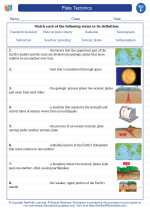Acids
What are Acids?
Acids are a group of compounds that have certain properties, including a sour taste, the ability to turn blue litmus paper red, and the ability to react with metals to produce hydrogen gas.
Chemical Properties of Acids
Acids are characterized by the presence of hydrogen ions (H+) when dissolved in water. They are proton donors, meaning they can donate a hydrogen ion to another substance. Some common chemical properties of acids include:
- Acidic Taste: Acids have a sour taste, such as citric acid found in lemons and acetic acid found in vinegar.
- Reactivity: Acids can react with metals to produce hydrogen gas and salt. For example, hydrochloric acid reacts with zinc to produce zinc chloride and hydrogen gas.
- Color Change: Acids turn blue litmus paper red, indicating their acidic nature.
- pH Level: Acids have a pH level lower than 7, indicating their acidic nature.
Common Acids
Some common acids include:
- Hydrochloric Acid (HCl): Found in the stomach and also used in industrial processes.
- Sulfuric Acid (H2SO4): Widely used in the production of fertilizers, chemicals, and in car batteries.
- Nitric Acid (HNO3): Used in the production of fertilizers, explosives, and as a cleaning agent.
- Acetic Acid (CH3COOH): Found in vinegar and used in food preservation and as a solvent.
Acid-Base Reactions
When acids react with bases, they form a salt and water in a chemical reaction known as neutralization. The general equation for an acid-base reaction is:
Acid Strength
The strength of an acid is determined by its ability to donate hydrogen ions. Strong acids completely dissociate in water, while weak acids only partially dissociate. The strength of an acid is indicated by its pH level.
Acid Rain
Acid rain is a result of sulfur dioxide and nitrogen oxides released into the atmosphere, which react with water vapor to form sulfuric acid and nitric acid. Acid rain can have harmful effects on the environment, including damaging plant life, aquatic ecosystems, and infrastructure.
Study Guide Questions
- What are the chemical properties of acids?
- Give examples of common acids and their uses.
- Explain the process of neutralization in acid-base reactions.
- Differentiate between strong acids and weak acids.
- Discuss the environmental impact of acid rain.
[Acids] Related Worksheets and Study Guides:
.◂Science Worksheets and Study Guides Sixth Grade. Plate Tectonics
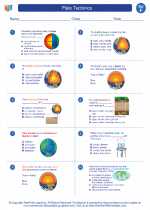
 Worksheet/Answer key
Worksheet/Answer key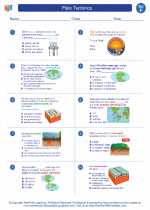
 Worksheet/Answer key
Worksheet/Answer key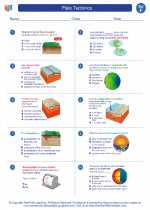
 Vocabulary/Answer key
Vocabulary/Answer key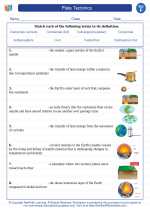
 Vocabulary/Answer key
Vocabulary/Answer key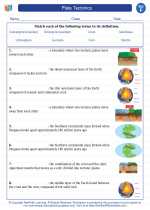
 Vocabulary/Answer key
Vocabulary/Answer key
 Vocabulary/Answer key
Vocabulary/Answer key